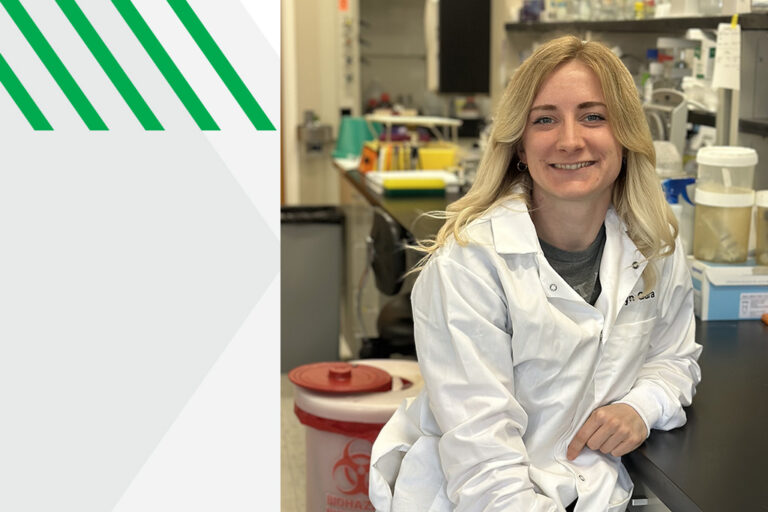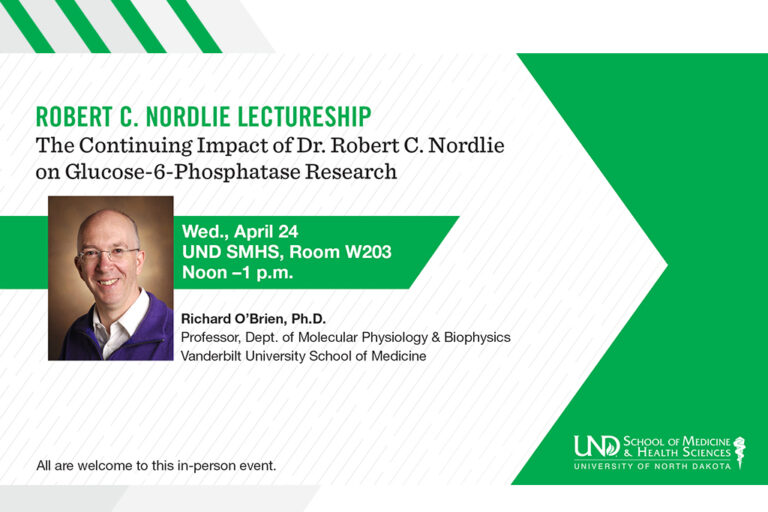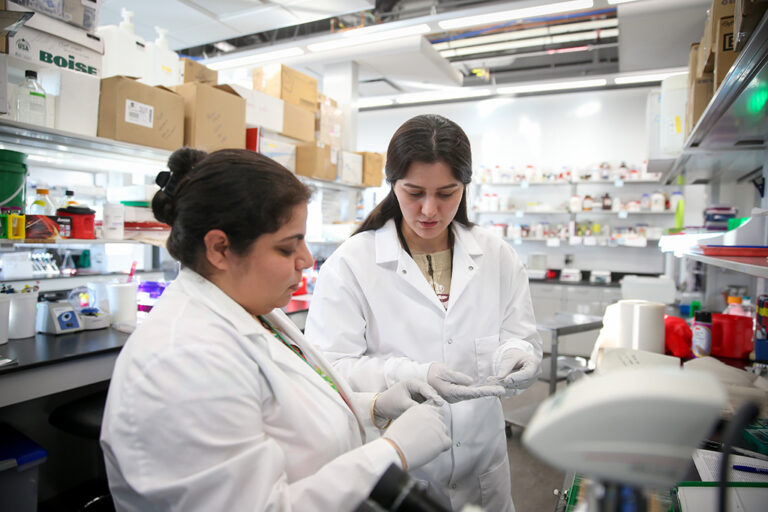Drs. Ling and Wu discover new ways of controlling CRISPR gene editing
 UND Biomedical Researcher Dr. Min Wu and Dr. Ping Lin, a postdoctoral fellow in Dr. Wu’s lab, have published a paper entitled “CRISPR-Cas13 inhibitors block RNA-editing in bacteria and mammalian cells” in Molecular Cell, a journal of Cell Press.* This paper describes the discovery, for the first time, of a set of small molecules from bacterial genomes that can counteract Cas13’s unwanted and harmful toxicity to improve applications in RNA editing.
UND Biomedical Researcher Dr. Min Wu and Dr. Ping Lin, a postdoctoral fellow in Dr. Wu’s lab, have published a paper entitled “CRISPR-Cas13 inhibitors block RNA-editing in bacteria and mammalian cells” in Molecular Cell, a journal of Cell Press.* This paper describes the discovery, for the first time, of a set of small molecules from bacterial genomes that can counteract Cas13’s unwanted and harmful toxicity to improve applications in RNA editing.
Since 2012, CRISPR-Cas9 has garnered intense interest due to its powerful gene editing ability. However, the gene editing potential is dampened by off-target effects and potential harm if applying to humans. The recent discovery of anti-CRISPRs (Acrs) has provided hope for addressing potential adverse effects.
Now, Dr. Wu, a Professor of Biomedical Sciences, and Dr. Lin, report discovery of a series of acrVIA genes that block activities of Cas13a orthologs using integrated approaches through broad screening. Cas13 differs from the DNA-targeting Cas9 and is an RNA endonuclease that only targets RNA and may have broad utility for RNA editing, nucleic acid detection, and disease diagnosis. The newly discovered AcrVI proteins by UND scientists may help control targeting specificity and potency to allow optimal RNA editing.
Researchers at UND collaborated with Dr. Jianxin Jiang of Army Medical University in Chongqing, China, to uncover these AcrVIAs. Cas13 has been a versatile, powerful tool for simultaneous diagnosis of multiple diseases with one convenient kit. Moreover, Cas13 tools have been applied in the field to detect viral infection, recently used for detecting the pandemic virus SARS-CoV-2 (causal agent for COVID-19), rendering an unprecedented application in some developing countries where medical service and modern medical equipment are scarce.
*Molecular Cell aims to publish the best research in molecular biology (From Cell Press).



